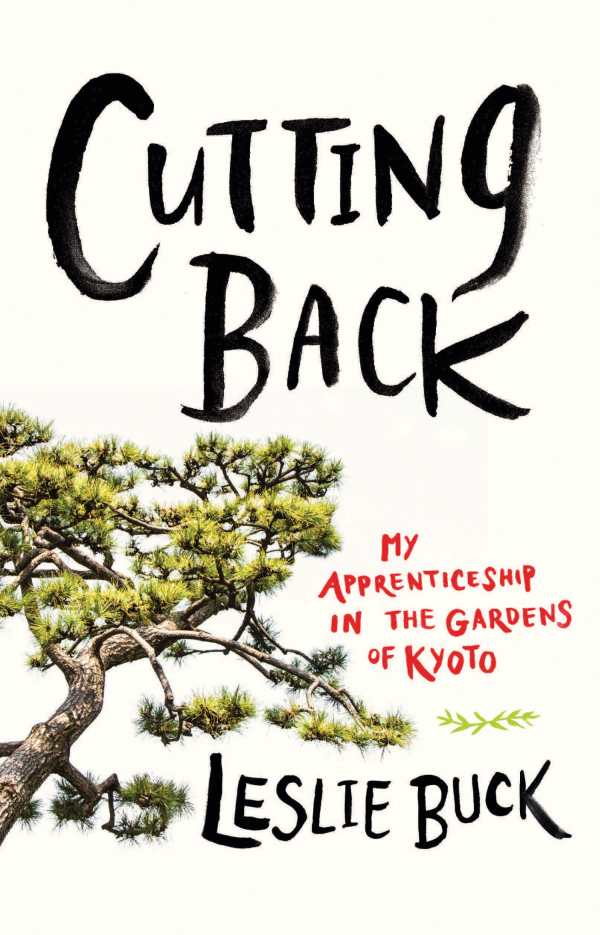
Cutting Back
My Apprenticeship in the Gardens of Kyoto
Buck’s memoir features a poetry of expression tempered by the keen eye of a gardener.
When Leslie Buck turned thirty-five, she ignored society’s pressures to start focusing on marriage, children, home ownership, and retirement accounts, and instead followed a curious urge to become an apprentice at Uetoh Zoen, one of Japan’s most revered landscaping companies. Buck’s memoir of this sojourn, Cutting Back, is told with beautiful, carefully crafted language and a perceptively candid voice.
Though Buck was already a successful garden designer in California, she willingly took the huge step backward into apprenticeship while uprooting herself and moving halfway across the world. Despite her affinity for Japan, she still struggled with language barriers and the unique complexities of both Japanese culture and horticulture. Beyond that, her coworkers at the Kyoto landscaping company were all male—and generally perplexed by the American woman who had joined their crew.
While Cutting Back excels on many levels, the book’s core is its intuitive appreciation for nature. Trees, gardens, flowers, koi, birds, and downpours of rain are wonderfully described, with a poetry of expression tempered by the keen eye of a gardener. Buck is earnest, hard-working, and appealingly truthful; she strives to learn from and keep up with her often impassive male colleagues, though she is frequently overwhelmed by exhaustion, the elements, or her own emotions. She always persists.
Cutting Back is in keeping with its Japanese setting, reflecting the significance of subtle beauty, small gestures, and a respect for tradition. Buck’s triumphs are minor, but well earned and quietly relished. In a country where gardeners are highly regarded and primarily men, Buck receives surprising encouragement from a group of elegantly dressed Japanese women, who see her toiling in her muddy uniform and urge her, Gambatte, or “Don’t give up.”
Buck’s ability to give up at the right time, however, leaves Cutting Back with a fitting, Zen-like conclusion.
Reviewed by
Meg Nola
Disclosure: This article is not an endorsement, but a review. The publisher of this book provided free copies of the book to have their book reviewed by a professional reviewer. No fee was paid by the publisher for this review. Foreword Reviews only recommends books that we love. Foreword Magazine, Inc. is disclosing this in accordance with the Federal Trade Commission’s 16 CFR, Part 255.
